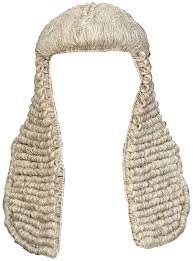Eric Ikhilae, Abuja

THE Supreme Court has criticised the role of a judge of the Enugu State High Court in the escape of a man, Clement Ezeazu (aka Fimmbbar), charged with the murder of the Chief Security Officer (CSO) of the University of Nigeria (UNN), Christopher Ogbonna.
A five-man panel of the apex court held that the unnamed judge abused his discretionary powers in granting bail, at just N250,000 to Ezeazu, even when the judge was not the trial judge.
The Supreme Court said, in its judgment, the judge, though not on trial before it, should “cover his face in shame for his failure to exercise his discretion on the bail application, both judicially and judiciously”.
The apex court accused him of aiding the escape of a defendant in a murder case.
According to the facts of the case, Ezeazu, who had shown interest in becoming the CSO, was charged alongside Chijioke Ugwu (another official in the university’s security department) with the murder of Ogbona. Ogbonna was said to have been murdered on May 26, 2002 in his official home at 449 Elias Avenue, UNN’s Nsukka campus.
At the arraignment of Ezeazu and Ugwu on a two-count charge of conspiracy and murder before Enugu State High Court on July 21, 2003, the trial judge rejected their request for bail.
But during the court’s vacation, another judge of the court, who was the vacation judge, granted bail to Ezeanu, who has since been on the run.
The Supreme Court, in its judgment, wondered why a vacation judge granted bail to a defendant in a murder case, when the defendant had been denied bail by the trial judge.
The judgment was on an appeal filed by Ugwu against the December 20, 2013 judgment of the Court of Appeal, Enugu, which upheld his conviction and sentence to death by hanging.
Justice Olukayode Ariwoola, in the lead judgment, reviewed the circumstances under which the vacation judge granted bail to Ezeazu and held that the judge ignored necessary factors in granting bail to the defendant.
Justice Ariwoola said: “In this case, the offence charged included murder, punishable with death sentence. The proof of evidence showed incriminating materials recovered from the accused person’s house upon execution of a search warrant on the house.
“With the available evidence, it baffles one to hear that the vacation judge, not the judge, whose court was to try the case, considered the bail and readily granted same.
“I believe that when the accused later jumped bail and he refused to make himself available for his trial, the judge should have realised that he has to cover his face in shame for his failure to exercise his discretion on the bail application, both judicially and judiciously.
“Ordinarily, judges should be above board as far as integrity and competence are concerned.
“It is rather unfortunate, to say the least, that a man, who was alleged to be involved in the gruesome murder of the CSO of the university and serial raping of the two grown-up daughters of the deceased, can be carelessly allowed to escape from justice.
“I shall say nothing more on this and let the conscience of the said judge continue to deal with him either in his retirement or still in service. He is, however, not on trial,” he said.
In the judgment delivered on January 24, 2020, Justice Ariwoola dismissed the appeal by Ugwu for lacking in merit.
Other members of the panel – Justices Kudirat Kekere-Ekun, Amina Augie, Paul Galumje and Uwani Abba Aji – agreed with the lead judgment.
